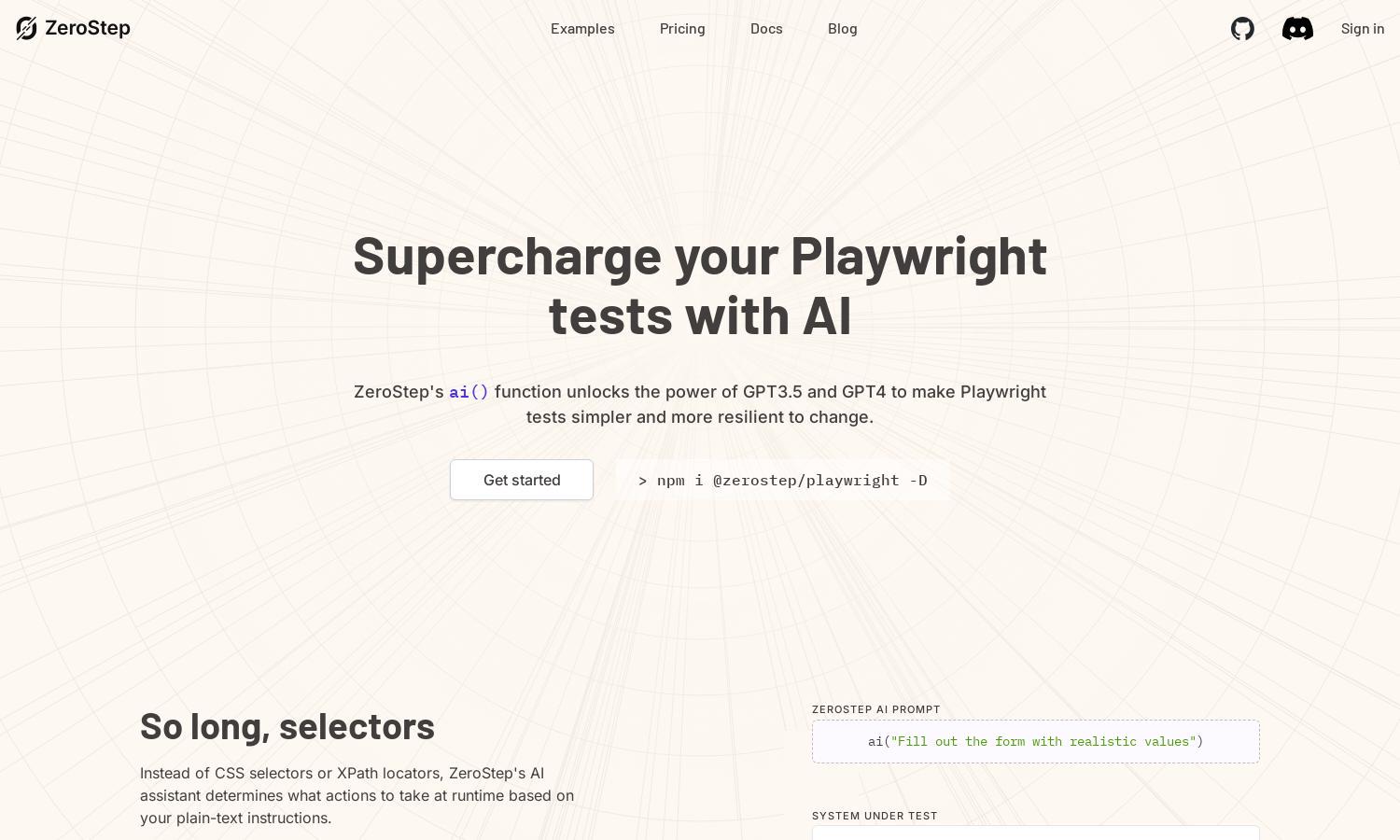ZeroStep

About ZeroStep
ZeroStep enhances automated testing by integrating an AI assistant with Playwright. This innovative platform allows users to create complex tests using natural language. It simplifies test creation, making it faster and more efficient while ensuring flexibility and adaptability to changes in the application.
ZeroStep offers flexible pricing plans catering to different users. The free tier includes 500 AI function calls monthly, perfect for individuals. For teams needing more capabilities, the $20/month plan allows 2,000 AI calls, ensuring scalability and value as testing needs grow.
ZeroStep's user interface is designed for seamless navigation, providing an intuitive experience. Its layout allows users to quickly access tools and resources for testing automation with ease. Unique features enhance usability, making ZeroStep a welcoming platform for both beginners and seasoned developers.
How ZeroStep works
Users start by signing up on ZeroStep and integrating it with Playwright. They can quickly create tests using plain-text instructions, which the AI interprets to perform automated actions. This user-friendly process eliminates the need for traditional selectors, enhancing efficiency and reducing the complexity typically involved in writing E2E tests.
Key Features for ZeroStep
AI-Powered Testing Automation
ZeroStep's AI-powered testing automation allows users to create E2E tests with plain-text instructions. This innovative feature enables rapid test development, reduces dependency on selectors, and empowers testers to implement changes swiftly, ensuring high adaptability in the testing process.
Seamless Integration with Playwright
ZeroStep seamlessly integrates with Playwright, allowing users to enhance their automated testing framework without altering their existing workflows. This deep integration enables quick implementation of AI functionalities into a variety of testing routines, streamlining the entire testing process.
User-Friendly Test Creation
ZeroStep offers a user-friendly approach to test creation, enabling users to write complex test scenarios using plain-language instructions. This accessibility simplifies automation, making it easier for non-technical users to engage in E2E testing while ensuring comprehensive coverage and reliability.








